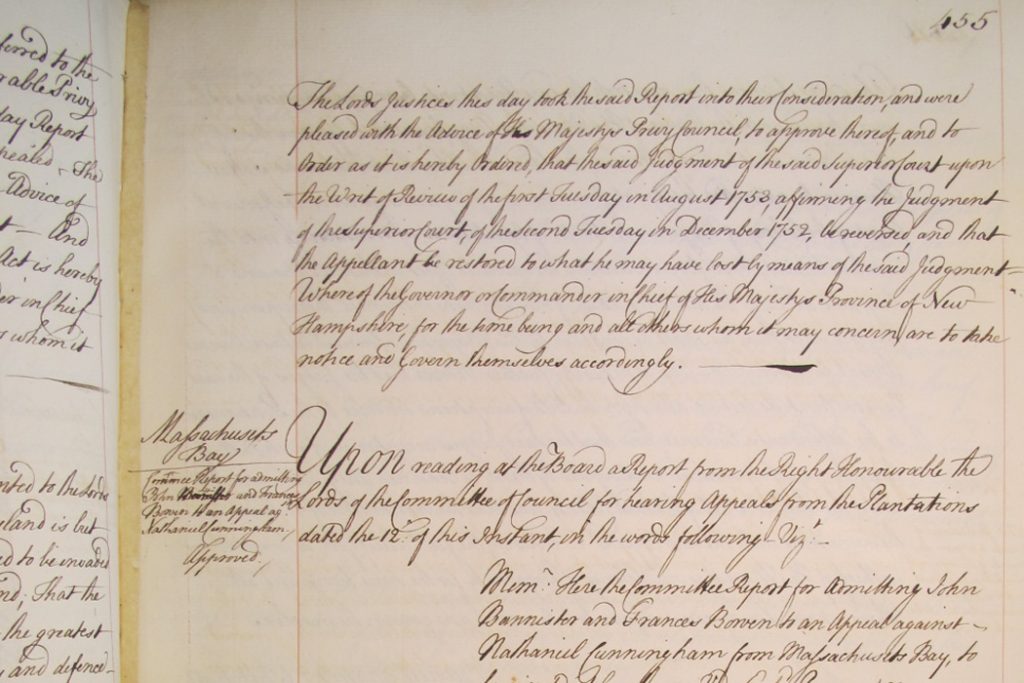Two Boston College Law School professors have brought an important piece of legal history into the modern age by opening a digital window on colonial-era appellate cases that helped shape constitutional law in America.
Combining scholarship and the power of technology, Professor and Lee Distinguished Scholar Mary Sarah Bilder and Professor Emerita Sharon Hamby O’Connor produced the new electronic resource, Appeals to the Privy Council from the American Colonies: An Annotated Digital Catalogue. Harvard Law School Paul A. Freund Professor Charles Donahue assisted in the project.
“For the first time in centuries, the site makes accessible the important appellate cases that helped to define constitutional law before the creation of the United States Supreme Court,” says Bilder. “The site combines the strength of print bibliographies with new digital technologies.”
The British Privy Council heard appeals from the 13 colonies that became the United States and from the other colonies in Canada and the Caribbean. More than 800 cases were appealed from the colonial supreme courts, nearly one-third of which came from the original 13 colonies. The site provides links to original documents for these appeals available in England and the United States. Most significantly, it includes images of surviving briefs filed in 54 of these appeals. These briefs—known as “printed cases”—provide the reasons for the appeals and reveal the principles underlying colonial constitutional law and eighteenth-century British common and statutory law.
A rich resource for scholars, students, and enthusiasts, the catalogue is annotated and contains links to other resources. The digital format permits flexibility in access and direct viewing of all documents. In addition to an introduction, the ADC includes a memorandum that offers advice on how to use the catalogue for developing a course paper or for advancing research in the field.
The Colonial Appeals ADC will eventually expand to incorporate appeals from Canada and the Caribbean. Preliminary lists of these appeals are included.
The project is an online publication of the Ames Foundation, which launched the site, http://amesfoundation.law.harvard.edu/ColonialAppeals/, this year.


